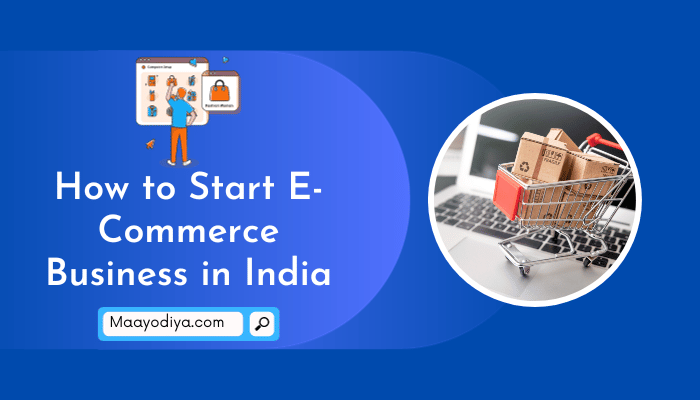
Are you thinking of starting your own e-commerce business in India? Well, you’re in the right place! In this step-by-step guide, we will walk you through the process of setting up your online store, attracting customers, and maximizing sales.
Starting an e-commerce business can be a daunting task, especially in a competitive market like India. However, with the right knowledge and strategies, you can turn your entrepreneurial dream into a successful reality.
In this guide, we will cover all aspects of starting an e-commerce business in India, from choosing the right platform and designing an engaging website to implementing effective marketing techniques and managing logistics. We will also provide valuable tips and insights from industry experts to help you navigate through the challenges and make informed decisions for your business.
Whether you’re a solopreneur or a small business owner, this guide will equip you with the essential tools and knowledge to build a strong foundation for your e-commerce venture. Get ready to take your business online and tap into the booming e-commerce industry in India!
Step-by-Step Guide to Start E-commerce Business in India
✅ Market analysis and identifying a profitable niche
Before diving into the world of e-commerce, it is crucial to conduct a thorough market analysis and identify a profitable niche. Research the current trends, analyze the competition, and understand the needs and preferences of your target audience. This will help you narrow down your options and choose a niche that has high demand and growth potential.
After you’ve determined your field of interest, you should conduct research on your target audience. Understand their demographics, interests, and purchasing behavior. This information will be invaluable when it comes to designing your website, creating marketing campaigns, and selecting the right products to sell.
Remember that picking the correct niche is critical to the success of your e-commerce project. It will determine your target audience, product selection, and overall marketing strategy. Take the time to thoroughly research and make an informed decision.
✅ Legal requirements and setting up your business
Now that you have identified your niche, it’s time to take care of the legal requirements and set up your e-commerce business. In India, you need to register your business as a legal entity, obtain the necessary licenses, and comply with the tax regulations.
The initial step is to select a business structure. You can opt for a sole proprietorship, partnership, or register your business as a private limited company. Each option has its own advantages and disadvantages, so it’s important to consult with a legal professional to understand the implications and make the right choice for your business.
Next, you need to register your business with the relevant authorities. This includes obtaining a PAN card, registering for Goods and Services Tax (GST), and obtaining any other licenses or permits required for your specific industry.
Don’t forget to protect your intellectual property rights by trademarking your brand name and logo. This will ensure that your business is protected from any potential infringements and give you the exclusive rights to use your brand assets.
✅ Building your e-commerce website
Once the legalities are taken care of, it’s time to build your e-commerce website. Your website will serve as the virtual storefront for your business, so it’s important to design an engaging and user-friendly experience.
Start by choosing the right e-commerce platform for your business. There are several options available, such as Shopify, WooCommerce, and Magento. When making your decision, consider considerations such as simplicity of use, customization choices, and scalability.
Next, you need to design your website. Keep it clean, visually appealing, and simple to use. Use high-quality product images, compelling product descriptions, and clear calls-to-action to entice visitors to make a purchase. Don’t forget to optimize your website for mobile devices, as a large percentage of online shoppers in India use smartphones to make purchases.
Check that your website is secure and that the checkout procedure is simple. Implement SSL certificates to encrypt customer data and offer multiple payment options to cater to different preferences. This will build trust and encourage customers to complete their transactions.
✅ Payment gateways and secure online transactions
One of the key components of a successful e-commerce business is the ability to offer secure online transactions. In India, there are several payment gateways available that facilitate seamless and secure transactions.
Popular payment gateways like Paytm, Razorpay, and Instamojo offer a range of features, including easy integration, multiple payment options, and robust security measures. Research and choose the payment gateway that best suits your business needs and integrates well with your e-commerce platform.
Ensure that your website is PCI DSS compliant to protect your customers’ payment information. This certification ensures that your business meets the highest standards of security and compliance, giving your customers peace of mind when making online purchases.
✅ Inventory management and order fulfillment
Efficient inventory management and order fulfillment are crucial for the smooth operation of your e-commerce business. In India, you have several options for managing your inventory and fulfilling orders.
Consider using a cloud-based inventory management system that allows you to track and manage your inventory in real-time. This will help you avoid stockouts, optimize your inventory levels, and streamline your order fulfillment process.
When it comes to order fulfillment, you can choose between self-fulfillment or outsourcing to a third-party logistics provider (3PL). Self-fulfillment gives you more control over the process but requires additional resources and manpower. On the other hand, outsourcing to a 3PL can save you time and effort, but you need to carefully choose a reliable provider that can meet your business requirements.
✅ Marketing and promoting your e-commerce business
Now that your e-commerce website is up and running, it’s time to focus on marketing and promoting your business. In a competitive market like India, effective marketing strategies are essential to attract customers and drive sales.
Start by optimizing your website for search engines. Conduct keyword research and optimize your product descriptions, meta tags, and URLs to improve your website’s visibility in search engine results. Implement a content marketing strategy that includes creating and promoting high-quality blog posts, videos, and social media content to engage and educate your target audience.
To reach and engage with your target audience, use social media platforms such as Facebook, Instagram, and Twitter. Run targeted advertising campaigns, collaborate with influencers, and create compelling content that resonates with your audience.
Consider implementing email marketing campaigns to nurture and retain your customers. Offer exclusive discounts, personalized recommendations, and relevant content to keep your customers engaged and encourage repeat purchases.
✅ Customer service and building customer relationships
Customer service is the foundation of any successful e-commerce business. In India, where customer expectations are high, providing exceptional service can set you apart from the competition and build long-lasting customer relationships.
Invest in a reliable customer support system that allows your customers to reach you through multiple channels, such as phone, email, and live chat. Train your customer support team to handle inquiries and resolve issues promptly and efficiently.
Personalize your customer interactions by sending personalized emails, offering personalized product recommendations, and providing a seamless and personalized shopping experience. This will make your customers feel valued and increase their loyalty towards your brand.
Collect and analyze customer feedback to identify areas for improvement and make informed business decisions. Implement a review and rating system on your website to encourage customers to leave feedback and testimonials.
✅ Scaling your e-commerce business
As your e-commerce business grows, it’s important to have a scalable infrastructure in place to support your expansion. Continuously monitor your website’s performance, analyze traffic patterns, and optimize your website to handle increasing volumes of visitors and transactions.
Invest in marketing strategies that scale with your business, such as paid advertising campaigns, influencer collaborations, and affiliate marketing. Leverage data analytics to gain insights into your customers’ behavior and preferences, and tailor your marketing efforts accordingly.
Consider expanding your product range to cater to a wider audience and increase your revenue streams. Conduct market research and identify products that complement your existing offerings and align with your target audience’s needs and preferences.
You May Also Read: Best Dropshipping Course in India
Conclusion and final tips for success
Starting your own e-commerce business in India can be a rewarding and profitable venture. By following this step-by-step guide, you now have the essential tools and knowledge to build a strong foundation for your e-commerce venture.
Remember to conduct thorough market research, choose a profitable niche, and comply with the legal requirements. Build an engaging and user-friendly website, offer secure online transactions, and optimize your inventory management and order fulfillment processes.
Invest in effective marketing strategies, prioritize excellent customer service, and continuously monitor and scale your business as it grows. By staying informed, adapting to market trends, and providing value to your customers, you can succeed in the booming e-commerce industry in India.
So what are you waiting for? Take the first step towards starting your own e-commerce business and tap into the immense potential of the Indian market. Good luck!


